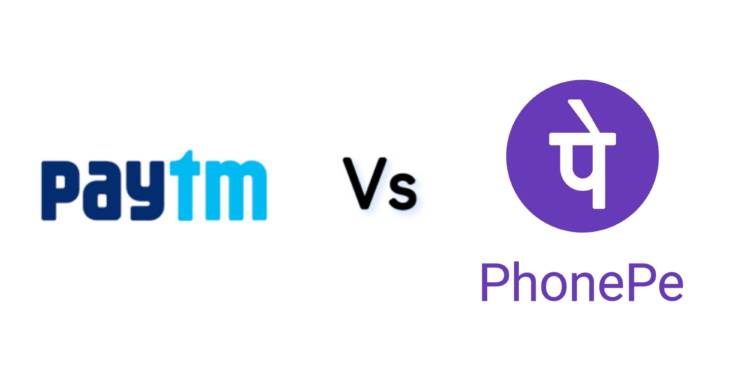The financial technology industry is undergoing huge churn and India is emerging as global leader in the fintech, thanks to startups like PhonePe, Paytm, GooglePay. But innovation comes at the cost of cut-throat competition and the same phenomenon is visible in Indian fintech industry nowadays.
When PhonePe services were down due to moratorium by RBI on Yes bank, the cut-throat competition between two fintech giants- PhonePe and Paytm- resulted in a twitter spat.
Seeing the trouble at PhonePe as opportunity to play big brother, Paytm official twitter handle invited the former to use its UPI platform. “Inviting you to @PaytmBank #UPI platform. It already has huge adoption and can seamlessly scale manifold to handle your business. Let’s get you back up, fast!” tweeted Paytm.
Dear @PhonePe_ ,
Inviting you to @PaytmBank #UPI platform. It already has huge adoption and can seamlessly scale manifold to handle your business.
Let’s get you back up, fast!
— Paytm Payments Bank (@PaytmBank) March 6, 2020
It became very clear from the tweet that Paytm’s offer to help was in bad taste and Vijay Shekhar Sharma run platform was trying to play to the role of big brother, that too uninvited.
The tweet from Paytm generated huge backlash and twitter users taught it a lesson. “Just uninstalled PayTM after reading this classless tweet,” tweeted a user named Kamya Chandra.
Just uninstalled PayTM after reading this classless tweet.
— Kamya Chandra (@kamyachandra) March 6, 2020
“First stop charging on adding money in wallet using a credit card. Then teach PhonePe,” tweeted another user named Parikshit Shah.
First stop charging on adding money in wallet using credit card. Then teach PhonePe.
— Parikshit Shah (@imparixit) March 6, 2020
Phonepe refused to accept Paytm’s offer and replied with jibe: Form is temporary, class is permanent’.
PhonePe, which used the Indian government’s United Payments Interface (UPI) to provide digital transaction services. The company was incorporated in December 2015 and was acquired by Flipkart in April 2016. However, the present form of the app started in August 2016, when it partnered with Yes Bank to launch UPI based mobile payment app. UPI, an Indian government-owned payment system developed by National Payments Corporation of India, proved to be highly sophisticated, and revolutionized the digital payments in India in last three and a half years.
Under the leadership of Chief Executive Officer Sameer Nigam, Phonepe has grown exponentially in the last three and a half years, accounting for 40 per cent of the total UPI based payments.
On the other hand, Paytm, which must be credited with developing country’s first e-commerce payment system – started in 2010- and probably first digital payments financial technology company, has not been able to compete with PhonePe. It diversified in many businesses including e-commerce with Paytm Mall and retailing with Paytm Smart retail, but the core function of the company, that is offering financial technology, suffered in this diversification process.
Now PhonePe, which was started just four years ago, controls a larger market share than Paytm, started in 2010. The Vijay Sharma led company could not digest this fact, and the frustration to play the big brother was very much visible in the tweet.
The people’s love for Phonepe and frustration from the services of Paytm was visible from the replies to the latter’s tweet.
Paytm posted loss of 3,959 crore rupees in FY 19 while the consolidated loss of the company was 4,217 crore rupees, compared to 1,604 crore rupees in FY 18. Posting loss is not a big issue for startups in the fintech sector as almost all startups including PhonePe posted loss of 1,907 crore rupees. But given the fact PhonePe’s parent company, Flipkart, has been acquired by Walmart, which has so deep pockets that it could sustain such losses more than hundreds of years, while Paytm has no such backing worry for the latter.
Another fact is that Paytm has already matured with almost a decade in the market while PhonePe is yet to mature and the company has already acquired 40 per cent of the market share. The frustration of losing against the three-year-old competitor was visible in Paytm’s classless tweet.

























